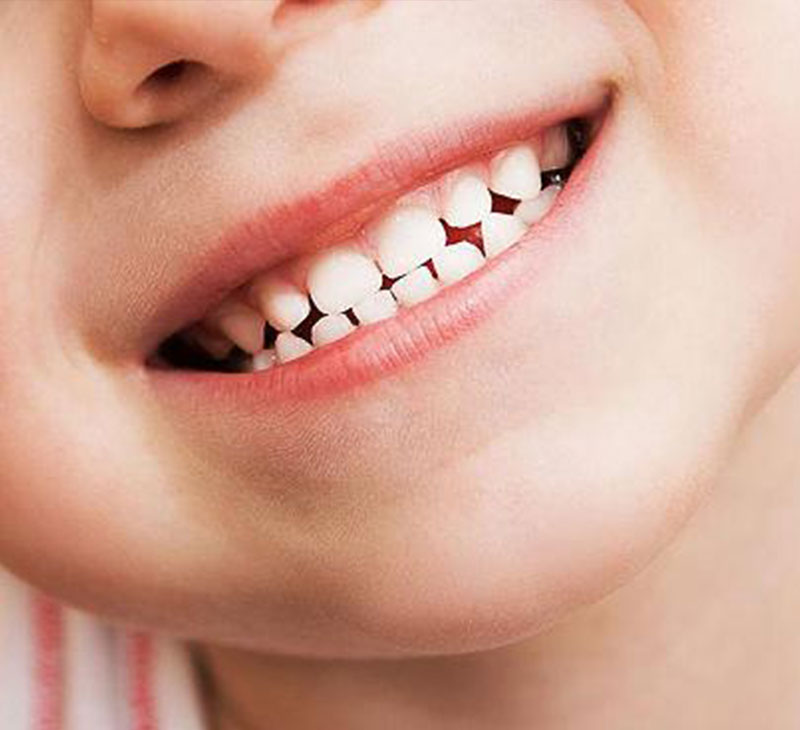Pediatric Dentistry
- Homepage
- Treatments
- Pediatric Dentistry

Teeth eruption in babies starts around 6 months, milk teeth are completed around 3 years old.
Teeth in babies begin to erupt around 6 months, and milk teeth are completed around 3 years of age. A total of 20 milk teeth (10 upper/10 lower jaws) last. During the eruption of teeth, some children may experience sleep disturbance, dry cough, irritability, and mild fever. In addition to helping the child in chewing and speaking, milk teeth protect the place of the permanent teeth that are developing under them, ensure the proper development of the skeleton and muscles. Regular brushing should begin as soon as the first teeth emerge.
The first cleaning begins with agents such as gauze, tooth cleaning wipes, finger brushes.
As dentition increases and teeth continue to erupt, a toothbrush is used.
One of the most frequently asked questions is the age to start toothpaste. Brushing with toothpaste can be started in children around the age of 2 years.
Caries is very common in infants and children.
Caries can be prevented with proper nutrition, regular tooth brushing and physician control.
Night feeding, sleeping with a bottle, a diet consisting of sugar and sweets and inadequate oral hygiene cause bacteria to remain on the tooth surface and cause tooth decay.
With some preventive treatments (fluoride applications, fissure sealants, plaque cleaning, etc.) that can be applied to milk and young permanent teeth, cavities that may occur can be prevented.
Keeping your milk teeth in the child's mouth chewing, speaking, It is very important to prevent social phobias that may occur due to aesthetic concerns. For these reasons, caries in milk teeth should be treated with fillings, root canal treatments, and placeholder applications in unwanted tooth loss.
Since the metabolisms of children and teenagers are different from adults, their treatment also varies.